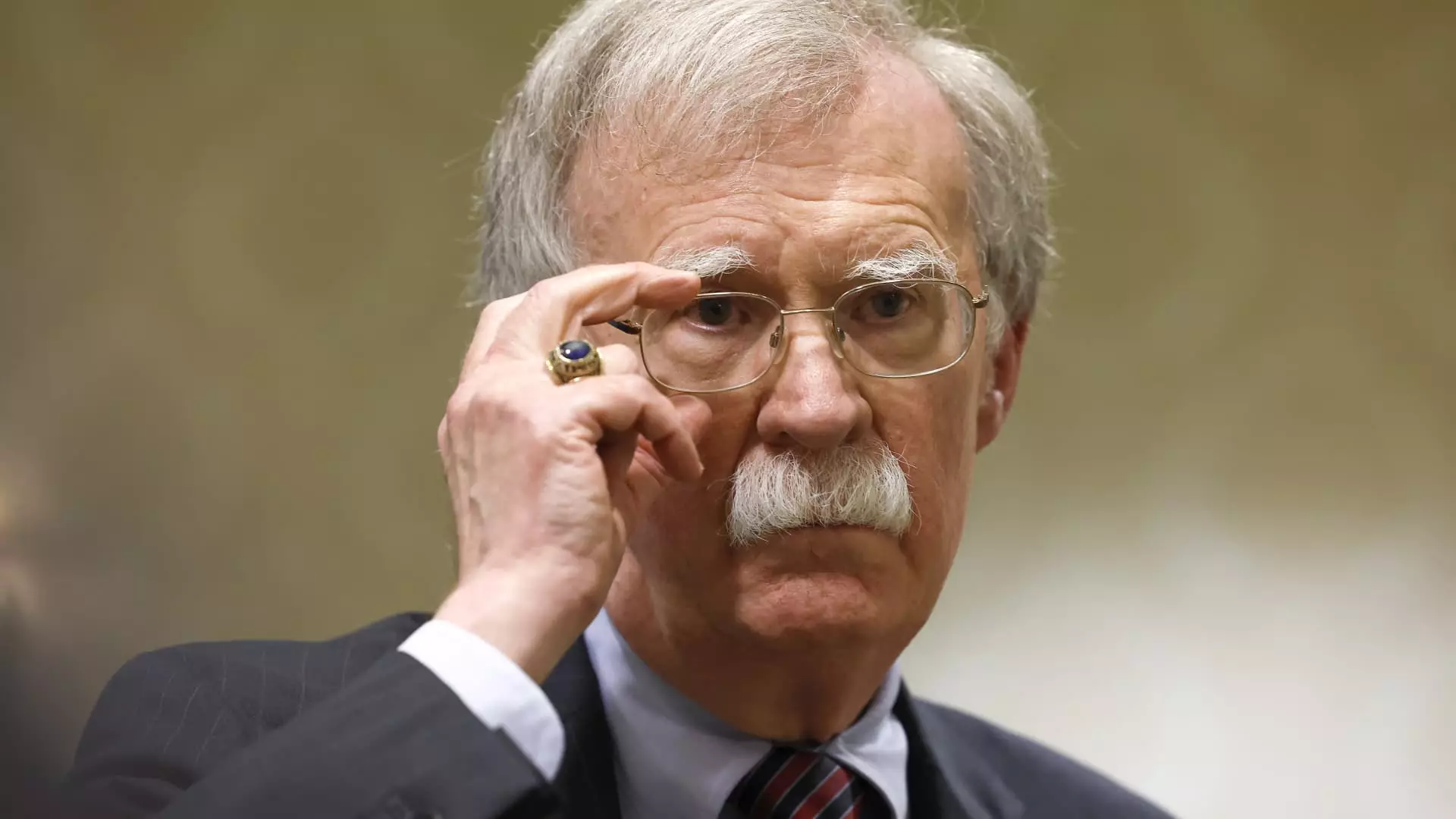When the Trump administration decided to engage in a sweeping trade war, the fallout sent shockwaves across global markets and strained long-standing alliances. The sheer audacity of imposing tariffs on allies as well as adversaries may have been fueled by a vision of economic dominance, but in reality, it appears to be one of the most catastrophic diplomatic blunders of modern times. As former national security advisor John Bolton pointed out, treating allies with disdain while simultaneously confronting a critical rival like China is not merely an economic miscalculation; it’s a strategic error that undermines America’s credibility globally.
Trump heralded the introduction of tariffs, dubbing it “liberation day,” yet in reality, it was anything but liberating. Instead of galvanizing a unified front against what he labeled unfair practices by China, his actions inadvertently created disunity among allies who have traditionally stood shoulder to shoulder with the United States. Sanctioning a blanket 10% tariff on imported goods without differentiation not only sparked chaos across global markets but gave rise to a tit-for-tat tariff battle with China that escalated tensions rather than resolving them.
Turning Allies Into Adversaries
The strategic recklessness of Trump’s tariff policies has led to the alienation of nations that have historically been important partners. Bolton’s remarks highlight an undeniable truth: the moral and economic fabric that has underpinned U.S. foreign relations since World War II is being shredded in the name of a misguided economic strategy. The motivations behind these tariffs, framed as a means to balance trade deficits, are built on a shaky premise lacking in coherent economic rationale.
International leaders, like French Prime Minister François Bayrou, have noted the erosion of trust that Trump’s policies have initiated. The creation of what Bayrou referred to as a “hurricane” of uncertainty erodes decades of collective goodwill. By placing trade allies on the same platform as adversaries, Trump has inadvertently empowered China’s negotiating position, allowing them to leverage American disunity to their advantage. Xi Jinping’s ability to travel through Southeast Asia, seeking to solidify allyships while the United States flounders, is further evidence of the failure to maintain a coherent strategy in the region.
The Economic and Strategic Blunder
As one watches the nation’s response to Tariffs — an indiscriminate measure imposed in part due to baseless calculations — it becomes painfully clear that this is an issue rooted deeper than video clips from a televised announcement. The economic ramifications are momentous, as trillions in wealth evaporated overnight in response to market chaos. Nevertheless, the most devastating impacts may not play out in the currency markets but rather in the long-term credibility of U.S. leadership.
Bolton rightly criticized the administration for ignoring the potential to unify a coalition of nations against unfair Chinese practices. By battling allies instead, Trump has squandered the opportunity to create a formidable front that could hold China accountable for its intellectual property theft and various manipulations of international trade dynamics. It’s evident that a more collaborative approach could have achieved the goal of curbing China’s more egregious behaviors, yet instead, we witness a policy that is both economically and diplomatically nonsensical.
China Seizes the Opportunity
While Trump’s administration grapples with the implications of its unpredictable tariffs, China remains steadfast, utilizing the chaos created by U.S. policies to further assert itself in the international arena. With tariffs on U.S. goods reaching staggering heights, and China vowing to “fight to the end,” the narrative has shifted from managing trade disputes to a worldwide reordering of allegiances. The strategic errors committed by the Trump administration, which seemingly emboldened China, may one day be viewed as a pivotal moment that altered the balance of power in Asia.
Xi Jinping’s efforts to strengthen relationships with Southeast Asian nations exemplify the potential vacuum left by American leadership. Rather than isolating China, this chaotic trade war may inadvertently solidify its presence on the world stage. Observers like Bolton note that Trump’s refusal to build alliances has left a gap that China is all too willing to fill, an alarming thought for anyone who believes in the importance of a stable, rules-based international order.
In a kaleidoscope of poorly calculated economic maneuvers, we are witnessing a grand experiment in American isolationism that has no clear exit strategy. Trump’s trade war is not only impacting commerce; it is fundamentally destabilizing international relations and dismantling the economic and security framework that has benefited the United States for decades. The implications of these ongoing failures resonate far beyond the tariffs placed on individual goods; they chart a course of instability that could haunt the future of American foreign policy for generations.



Leave a Reply